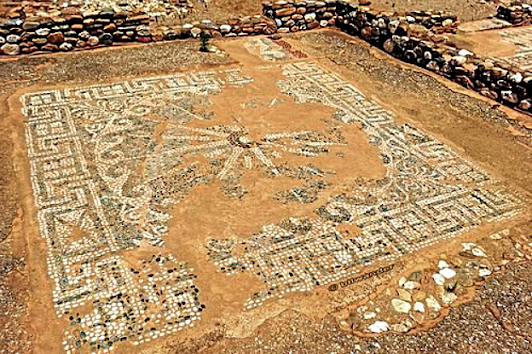(20 Nov
2014) LEADIN:
In an
excavation over the past three months near ancient Amphipolis, 600 kilometres
(375 miles) north of Athens, Greek archaeologists have uncovered a
three-chamber tomb decorated with marble statues of sphinxes and young women,
and a large mosaic pavement.
The
discovery has intrigued archaeologists who are trying to solve the riddle of
who was buried there in opulent splendour, during the twilight of Alexander the
Great's reign in the late 4th century B.C. and sparked interest in the
Macedonian civilisation.
STORYLINE:
They were
the ancient world's ultimate social climbers.
In one
generation, the Macedonians emerged from Greece's rustic northern fringes to
rule most of the world they knew.
In the
process, and particularly in the bloodbath that followed Alexander the Great's
death at the age of 33 in 323 B.C. they set new standards for ambition, bloody
intrigue and excess - funded by the loot of the Persian Empire - that remained
unrivalled until the more colourful periods of Imperial Rome.
Alexander's
Greek armies, which combined heavy infantry formations armed with the
formidable Sarissa pike and elite cavalry units, won him an empire stretching
from modern Greece to India, where he only stopped because his exhausted
veterans decided enough was enough.
The
discovery of a cavernous underground tomb in Amphipolis, northern Greece,
dating to the twilight of Alexander's reign, has revived interest in the
Macedonians.
Interest
began in the late 1970s with the discovery of a lavishly-furnished tomb in
northern Greece belonging to Alexander's father, Philip II, under whom
Macedonian expansion began.
In recent
decades, archaeologists in northern Greece have also excavated the old
Macedonian royal seat of Aigai, with its palace and cemeteries, and the later
capital at Pella, where Alexander was born.
Yiannis
Xydopoulos, assistant professor of ancient Greek history at the Aristotle
University of Thessaloniki, says the Macedonians were more worthy fighters than
the Athenians and eventually became the Macedonian king's main army.
"He
(the Macedonian) was a much more worthy fighter (compared to the Athenian), a
farmer of vegetables and livestock who tried to survive on a daily basis in the
face of not only regional adversities but also of external threats. You
understand that this automatically created people that later became the
backbone of the Macedonian army on which the Macedonian king could rely."
They proved
effective for King Philip II, who came into power at a very young age, during a
time when Xydopoulos says people needed unity under a single leader.
Angeliki
Kottaridi is the head of the archaeological sites at Vergina .
She says
Philip II was the first individual who succeeded at establishing a united Greek
state.
"Philip
effectively receives a fractured state in 359 (B.C.) when he becomes king, and
in 25 years, succeeds in creating the greatest power at the time by revising,
making substantial reforms in the military, economy, society," she says .
Philip
succeeded in protecting his kingdom from external invaders but also created a
major military power, in part due to the introduction of a long spear called
the sarissa.
Spearheads
from the sarissa were found in Philip's tomb in Vergina along with body armour,
a gold wreath and other artefacts as part of his funerary pyre.
Philip
never fulfilled his dream of destroying the Persians. He was assassinated in
336 B.C.
Alexander
insisted on marriages between his army and native women in an attempt to unite
cultures.
AP Archive












